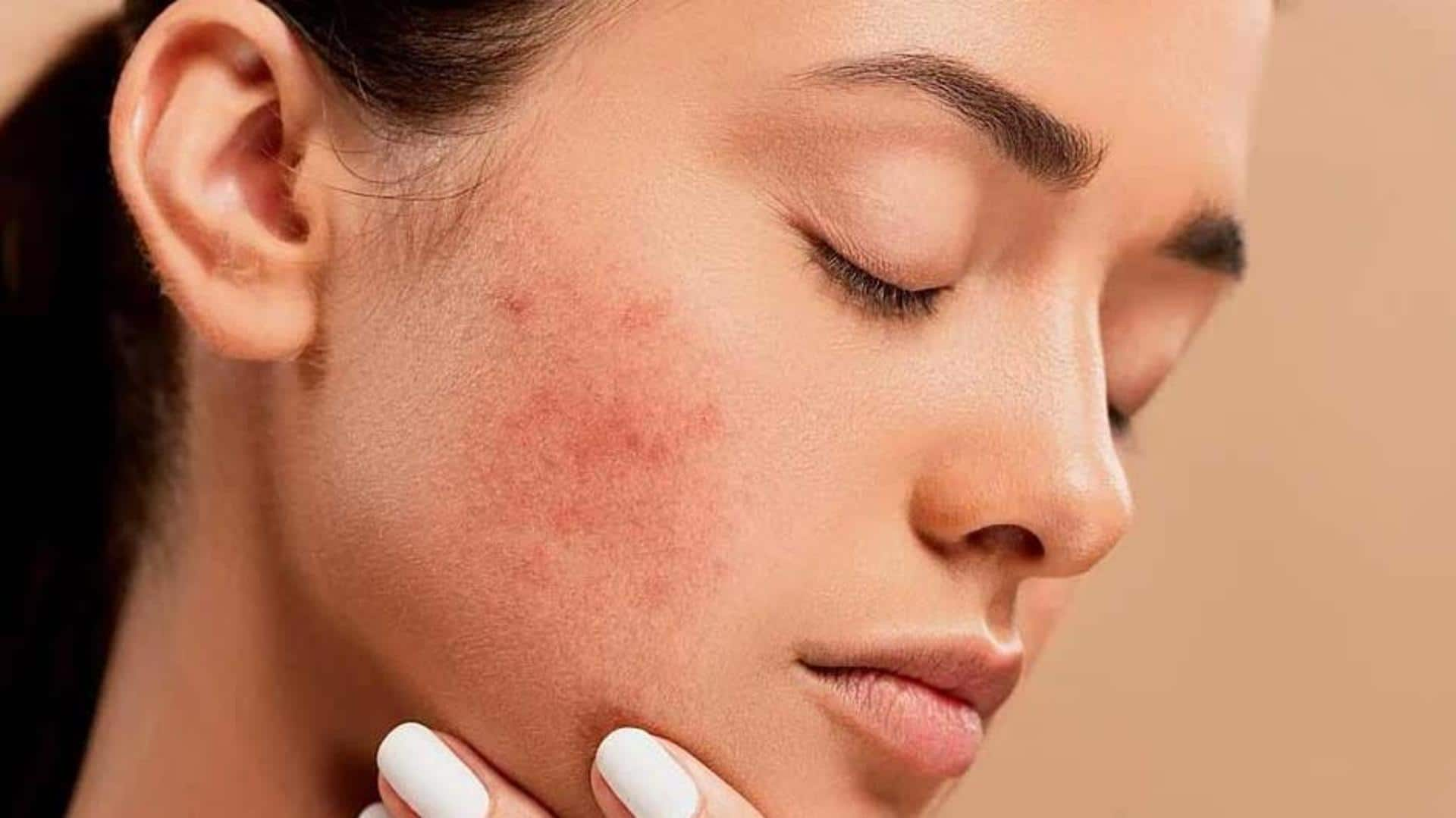
All you need to know about body acne
What's the story
Acne is a common skin condition that develops when your hair follicles get clogged with sebum, an oily substance, bacteria, and dead skin cells. Acne typically appears on the forehead, nose, cheeks, chest, upper back, and shoulders. Though acne is most common among teenagers, it can affect people of all ages. Most people have been affected by acne at some point in their lives.
Context
Here's what our expert says
Acne is a group of conditions that arise due to blockage in hair follicles due to oil or dead skin cells. It can take many forms and is seen in prone individuals during a phase of stress, hormonal changes during puberty, and when taking certain medications. It is a self-resolving condition in most, although for severe cases a dermatologist should be consulted.
Types
Types of acne
Fungal acne: They appear when an excess of yeast develops in hair follicles Cysts: These pus-filled pimples can cause scars. Blackheads: Bumps that remain open on the skin Whiteheads: Closed bumps that appear whitish in color Nodules: Large and painful pimples deep in the skin. Papules: Bumps that feel inflamed Pustules: Pimples that look like whiteheads surrounded by red rings.
Causes
What causes acne
The following things may trigger or worsen acne: Hormonal changes: Androgens in teenagers increase during puberty and cause the sebaceous glands to enlarge. These glands then make more sebum. Medication: Drugs containing corticosteroids, testosterone, or lithium. Diet: Consuming carbohydrate-rich foods may worsen the condition. Stress: If you already have acne, stress may worsen it. However, stress doesn't cause acne.
Myth busters
Common misconceptions about acne
Eating chocolate or greasy food does not cause acne. Dirty skin doesn't cause acne, though scratching the skin too hard or using harsh soaps or chemicals can irritate the skin and worsen preexisting acne. Cosmetics have little to no effect on acne development, especially if you are using non-oily cosmetic products. However, always remove makeup before going to bed. Masturbation doesn't cause acne either.
Prevention
How to prevent acne from developing
Stop using cosmetic products that jam your pores. Instead, choose grooming products that are non-comedogenic or non-acnegenic. Wash your clothes and bed sheets more often. Keep your skin fresh and clean. Shower regularly, be gentle with your skin while washing, and dry pat with a clean towel. Make sure to immediately change your clothes after a heavy workout.